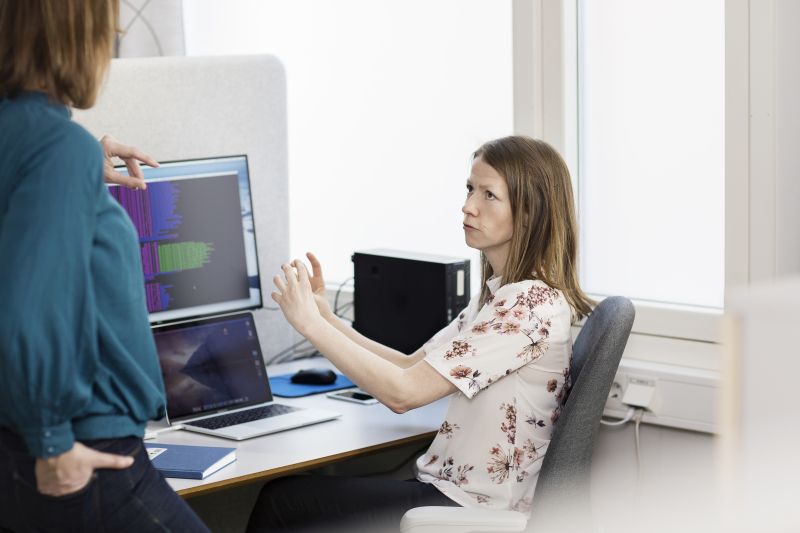K.G. Jebsen Center for Genetic Epidemiology
K.G. Jebsen Center for Genetic Epidemiology

The overall aim of the K.G. Jebsen Center for Genetic Epidemiology is to better understand human health and disease by studying genomic variation in populations. The center primarily works on the translational axis between population-based and laboratory-based research.
The center formalize collaborations between four strong local research groups and a world leading team of international collaborators at the interface of medicine, epidemiology, genetics, applied statistics, bioinformatics and system biology.
Young scientist of the month
Previous "Young scientists"
Brumpton's research involves understanding the genetics of complex traits and diseases and the use of genetic data within epidemiological frameworks to make causal inference. His methodologies are Genetic Epidemiology and Mendelian Randomization.
Wolford is currently pursuing a PhD in Bioinformatics and Master of Arts in Statistics at the University of Michigan. She studies the genetics of cardiovascular and metabolic traits in large genetic datasets using statistical methods and high-throughput computing.
Løset is a Postdoctoral Fellow at the K.G Jebsen Center and a Clinical Resident at the Department of Dermatology, St. Olavs Hospital. Her work includes genetic studies using data from HUNT in combination with regional- and national health registries, and RNA sequencing data from psoriasis-related skin samples. She aims to reveal novel mechanisms for inflammatory skin diseases and to translate these insights into prevention strategies and treatments.
With a background in statistics, Hall is now doing a PhD in biotechnology, combining statistical modeling and network analysis with applications for biological data. Most of her projects involve analysis of large genetic datasets for different conditions, applying methods such as penalized regression and dimension reduction, differential co-expression networks, bipartite networks and Markov models.
Øvretveit is involved in the development of a medical digital twin that aims to prevent and treat hypertension. He is also a researcher in Skill and Performance Development in Sports and School and head of the project Describing and Developing the Brazilian Jiu-Jitsu Athlete.
Associate Professor Giskeødegård has a PhD in Medical Technology. Her research is focused on MR spectroscopy of tissue samples and biofluids from breast and prostate cancer patients, and she has a special focus on multivariate data analysis of the MR spectra. Her research goal is to identify biomarkers for improved diagnosis and treatment of breast and prostate cancer.
Chronic kidney disease (CKD) is Humaira Rasheed´s key phenotype of interest, and using large population-based data sets (including HUNT and UK biobank) she has recently explored and published studies investigating the genetic and causal risk factors involved in the onset of CKD. Rasheed has been trained for cutting-edge research approaches including Mendelian Randomization, genome-wide association analysis, gene-environment interaction analysis, and risk analysis. Her future research interest includes the use of omics data to better understand health and disease conditions.
Moksnes, a PhD Candidate, aims to discover novel genetic risk factors for complex traits by combining genetic and phenotypic data from the Trøndelag Health Study (HUNT), other population-based biobanks and electronic health records. She also explores causal relationships using methods for genetically informed causal inference.




